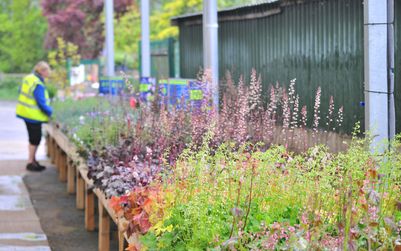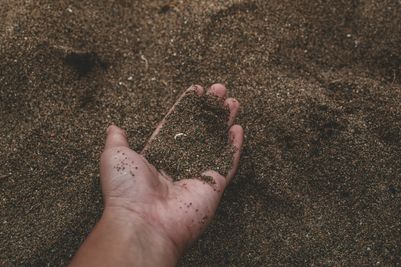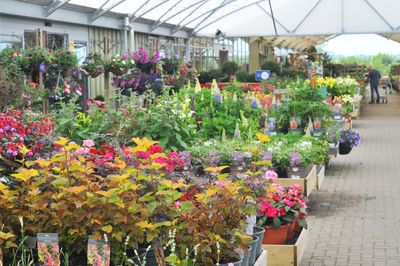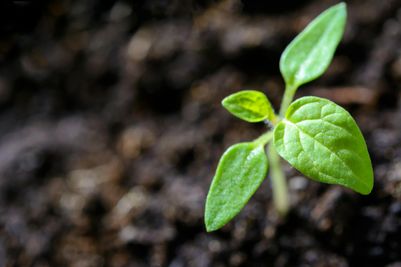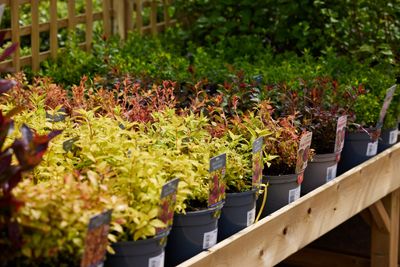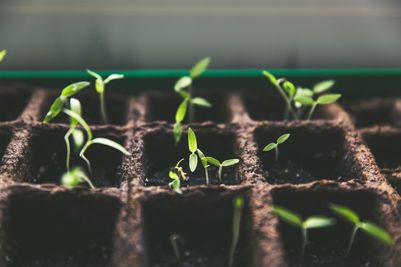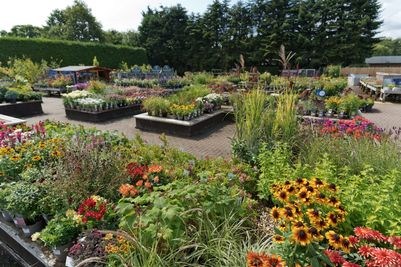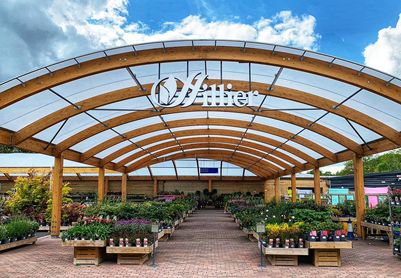Peat-free plant care: simple tips for a greener garden
Published:
Read Time: 4 mins
Peat-free alternatives will soon be the norm, yet many gardeners don’t realise that peat-free compost offers excellent water retention, nutrient delivery and plant health – proving just as effective as traditional peat-based options.
Hillier Nurseries, a leader in sustainable horticulture with 100% peat-free nurseries, champions this eco-friendly approach. Charles Carr, Head of Wholesale Nurseries at Hillier, works with the RHS as part of the Peat-Free Fellowship, the largest peat-free collaborative research project globally helping to further industry research into the topic.
Below, Charles shares his top tips on caring for plants in peat-free compost.
Choose the right peat-free compost
“Selecting the correct peat-free compost is just as important as choosing the right plants, as different compost blends cater to different needs. Multi-purpose peat-free compost is ideal for a variety of plants and makes a great all-rounder, whereas ericaceous peat-free compost, which is fortified with iron, is designed for acid-loving species like rhododendrons and camellias. Houseplants and container-grown plants prefer John Innes compost that provides long-term structure and stability thanks to its added bio stimulants and nutrients. Look for responsibly sourced compost with the appropriate blend of organic materials to support each plants’ specific needs.”
Manage moisture and water effectively
“Watering is a key factor that sets peat-free compost apart from traditional peat-based options. Moisture retention varies between blends as some hold water exceptionally well, while others drain more freely. As a result, watering routines may need adjustment. The best way to gauge water levels is by pushing a finger into the compost, as the surface can appear dry while moisture remains below. However, in hot weather, peat-free compost can dry out more quickly, making regular monitoring essential. For improved hydration, a water retention gel can help maintain consistent water levels but regularly checking the soil and watering if needed is just as effective.”
Ensure proper drainage
“To prevent waterlogging in containers, which can lead to various issues, adequate drainage is essential. Adding holes to the bottom allows excess water to escape, protecting plant health and reducing the risk of root rot. Paper-based containers naturally allow moisture to seep through, meaning they require fewer drainage holes than plastic pots. While proper drainage helps prevent water accumulation, it can also cause nutrients to leak from the soil. As water flows through the compost, it carries essential minerals away, potentially depleting the soil over time and affecting plant growth.”
Provide regular nutrients for strong growth
“Good drainage supports plant health but can also wash away essential nutrients. To counteract this, regular feeding is recommended. Plant food is available in various forms, including controlled-release fertilisers, liquid feeds and organic additives that complement peat-free compost. The best choice of plant food depends on the specific needs of the plants being grown. Researching the appropriate nutrients ensures optimal growth and overall plant wellbeing.”
Select pots for optimum temperature control
“The colour of a pot can influence the soil temperature and its moisture retention. Dark pots absorb more heat, leading to faster compost drying in warm weather, whereas lighter coloured pots reflect heat and provide a more stable environment. Selecting appropriate containers is particularly important for plants sensitive to temperature changes.”
For more information about Hillier and its peat-free efforts, visit the Peat Free Hub at https://www.hillier.co.uk/peat-free/. For gardening tips, exclusive offers and expert advice, sign up to the Hillier Gardening Club today, www.hillier.co.uk/gardening-club
Ends
Editors notes
“To inspire the creation of green living spaces for now and the future” Hillier is one of the leading names in the horticultural industry, with 160 years of growing and retail experience.
Founded in 1864 by Edwin Hillier, the company remains a family-run nursery with the fifth generation now actively involved in the family business as it continues to grow.
Not only is Hillier the largest producer of semi-mature trees in Europe and grower of over one million plants at its Hampshire nursery, but it also employs over 750 staff across its nursery, amenity trees and 22 garden centre divisions and is a flourishing multi-million pound company. It proudly holds the world record for the most consecutive gold medals awards at the world-famous RHS Chelsea Flower Show, with 74 wins.
As one of the leading growers in the UK, Hillier is involved in many peat-free initiatives, including the RHS Peat-Free Fellowship, the largest peat-free collaborative research project globally. The company was amongst the first nurseries to become 100% peat-free across both its production nursery and retail garden centres, and all Hillier plants are grown in peat-free compost.
Recent successes for the company include the launch of its online shop, the substantial redevelopment of Hillier Garden Centre Newbury and the acquisition of the Rosebourne Garden Centre Group in November 2022, as well as sponsorship of BBC Gardeners’ World Live and BBC Gardeners’ World Spring Fair, and the incredibly popular free ‘Hillier Gardening Club’ loyalty program which now has over half a million members.
Renowned for being a leading breeder of plants in the UK at its 100% peat-free nursery in Hampshire, each year Hillier introduces amazing new varieties. Many of these have become essentials in British gardens and the company continues with the tradition of innovation and the introduction of new garden plants in the present day.

